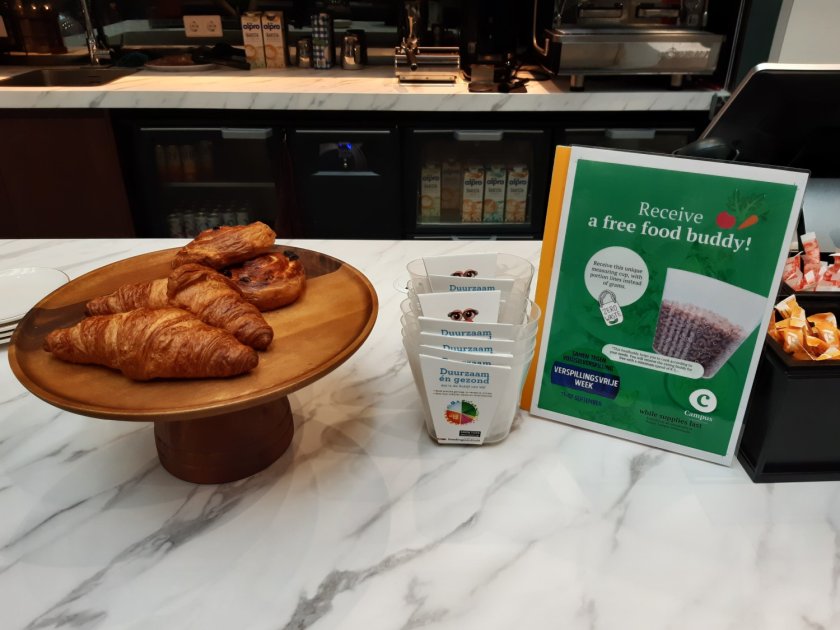
category_news
‘We can all contribute to a waste-free campus’
The annual Waste Free Week is held from 11 to and including 17 September. Wageningen Campus also focuses on preventing food waste. Sanne Stroosnijder, programme manager of Food Loss and Waste Prevention at Wageningen Food & Biobased Research, explains how WUR achieves a waste-free campus.
The Waste-Free Week is well underway on Wageningen Campus. Caterers in the different buildings serve waste-free menu items and hand out fridge magnets to help people store their produce correctly at home. Smart scales are strategically placed in several locations to monitor how much food is wasted with the help of image recognition. Sanne Stroosnijder takes advantage of the added focus of food waste to unite people: ‘We have organised a waste-free networking lunch this week, where employees of WUR’s Facilities & Services and researchers share information with caterers and other partners on campus such as Unilever.’
Plan A, plan B and plan C
Combatting food waste on the campus calls for ‘time and effort’, says Stroosnijder. ‘The campus caterers are making every effort they can, and we are seeing real improvements.’ But reducing food waste is not just the caterers’ responsibility, she adds. ‘People taking part in events, meetings and gatherings can help ensure that the correct amount is ordered by registering or cancelling on time, and organisers can consider what to do about food that is not consumed. Using a foody bag to take leftovers home, for example, or through Too Good To Go or Foodsharing. These are excellent options for food that is not used.’

How this works became clear during the Annual Introduction Days (AID) three weeks ago. Stroosnijder organised a workshop on waste-free cooking. However, the warm weather caused many students to opt for a different activity, which meant quite some food was left over. ‘We had thought about this possibility beforehand. The chef was able to use some of the products for the next event, and some AID crew members took food with them to distribute among the rest of the crew. Foodsharing Wageningen collected what was left. Foodsharing is an organisation whose mission is to recover and distribute food that would otherwise be wasted. So, we had a plan A, a plan B and a plan C. Ultimately, nothing was discarded.’
Critical steps
After the Waste-Free Week, there are still plenty of challenges on campus, particularly concerning meeting lunches and other catered events where there are many leftovers. But WUR is taking critical steps in the right direction, says Stroosnijder. ‘Facilities & Services, for example, has included targets for preventing food waste in the caterers’ tendering. That is the type of systemic change we want to see.’